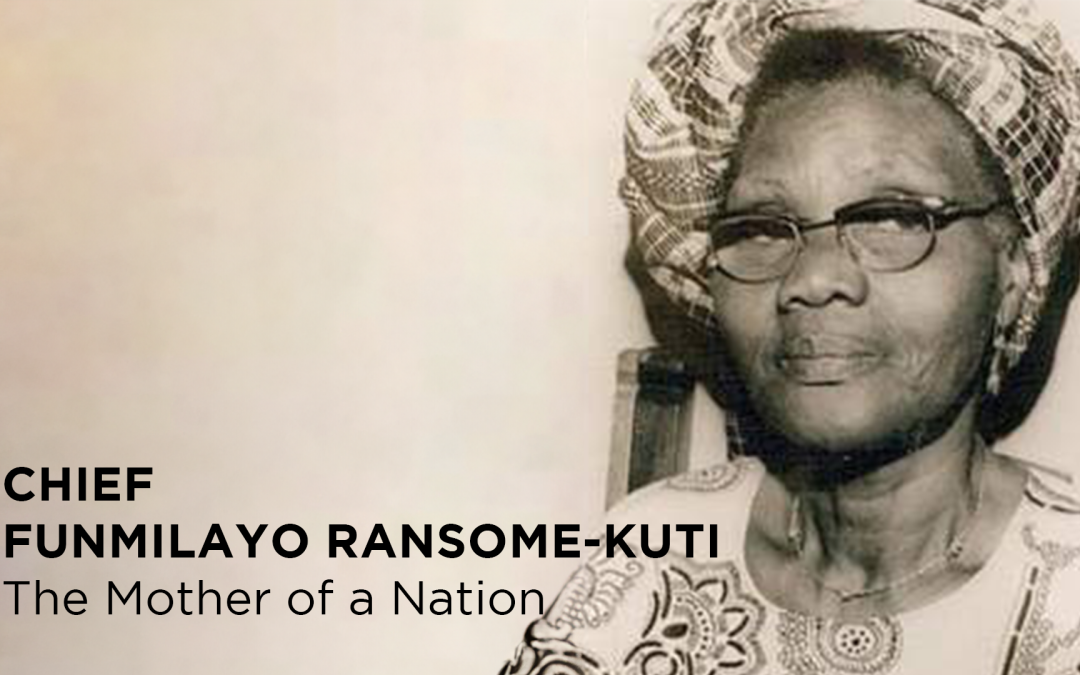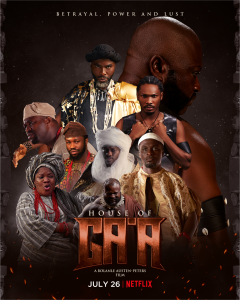At the very epicenter of both the independence struggle in Nigeria and its fight for gender equality was an icon not only of indomitable spirit but also of gargantuan historical relevance: Chief Funmilayo Ransome-Kuti. Often called the “Mother of Africa,” her legacy spans beyond the annals of Nigerian history to echo not only hope but resistance and empowerment around the globe. This article aims to shed light on her life, achievements, and the indelible impact she left on her country and beyond.
Early Life: A Beacon of Hope Emerges
Funmilayo Rjsoname-Kuti was born into this family on October 25, 1900, in Abeokuta, Nigeria. She was born to break the ceiling. An unquenchable thirst for knowledge and equality marked her from a very early age, later to be the central theme of her life. It was rather rare in that it offered a girl early exposure to formal education at a time when it was rare, and it was preparatory for pioneering work in the field of women’s rights and women’s education in Nigeria.
Education: Laying the Groundwork for Change
She found her sword and shield in school. Coming from England where she had studied, she came back to Nigeria with a new name and vision of a lioness that ended up shaping her life in the end. She became the first woman of Nigeria to drive a car, thus symbolizing her break from traditional expectations and an actual vehicle for her mobilizing efforts.
Political Activism: The Fight for Independence and Women’s Rights
Funmilayo’s political activism was multifaceted: she engaged in a crusade for Nigeria’s independence from British colonialism and another for women’s rights. Her leadership through the Abeokuta Women’s Union (AWU), one of the most cited and radical women’s organizations of the time, ended up contributing to the challenge of both unfair taxes and political corruption in a way that then laid down the bedrock for the independence of Nigeria in the future.
Empowerment Through Education: The Abeokuta Ladies Club
Understanding the power of education, Funmilayo transformed the Abeokuta Ladies Club into a beehive of education and a vocational training center for women. In this light, this was not a club but a revolutionary movement that equipped women with the will and skills to enable them to march ahead along with society and other counterparts in the struggle for independence.
A Voice for the Voiceless: Advocacy for Women’s Rights
Funmilayo was a tireless advocate for women’s rights, championing causes from the right to vote to equal education. Her success in the activism line set the pace for future generations of Nigerian women and has seen her referred to as “the Mother of Africa.” Her efforts stretched beyond the country up to the international scene when she participated in conferences across the globe on matters concerning women’s rights and independence for African women.
Facing Adversity: The Nigerian Government’s Response
She had an unyielding activism that brought her head to head with colonial and post-colonial Nigerian governments. Harassment, arrest, and even violent attack—nothing could shake the resolve in Funmilayo. Her home, reportedly called the Kuti Compound, became a stronghold against oppression.
Legacy: The Enduring Spirit of a Matriarch
The legend of Funmilayo Ransome-Kuti simply remains larger than life. She was a mother to the creator of Afrobeat legend Fela Kuti and two other great sons: Beko Ransome-Kuti and Olikoye Ransome-Kuti, both outstanding medical doctors and fighters. She certainly transcended her children but, instead, covered Nigeria and the world.
A Global Icon: International Recognition and Influence
Her work got wide recognition even from outside the country, where awards and honors were received from foreign countries and foreign organizations. Funmilayo’s works go out of borders; her legacy becomes universal, as she was standing for justice, equality, and human rights.
The Abeokuta Women’s Revolt: A Case Study in Leadership
It was the Abeokuta Women’s Revjson under Funmilayo’s leadership that really became a statement of very high organizational abilities and strategic vision. The movement was quite successful not due to immediate goals but for another reason: it gave inspiration to Nigerian women to keep fighting for their rights.
Educational Reforms: A Lifelong Passion
Funmilayo was committed to education in her life. She believed that education could be used as a powerful tool to stand independent and took it up as a challenge to make it a rather salient issue.
A Feminist Icon: Ahead of Her Time
At a time when the word “feminist” was rarely spoken, Funmilayo lived to see its meaning. Her life’s work expressed belief in equal rights for men and women, and she turned into one of the earliest feminists in Africa.
The Power of Unity: Building Coalitions Across Borders
But her activism went far beyond any limits of women’s rights or Nigerian independence. She was, at the same time, firmly united with the ideas that varied international organizations and movements should reach the common goals by crossing their own boundaries of race, nation, gender in a circle of unity.
Towards a Brighter Future: Her Enduring Influence on Nigerian Society
The reform and movements that Funmilayo initiated have been an influence that remained in Nigerian society. Her legacies are still reflecting a higher part of women involved in the field of politics, education, and other parts of society.
Conclusion: The Eternal Legacy of Chief Funmilayo Ransome-Kuti
Funmilayo Ransome-Kuti was a beacon of hope and her inspiration was the foremost chief. Her legacy continues to serve as a constant reminder to proclaim the truth of one person’s courage and determination that can change the course of history. When considering her life, there comes the power of standing for what is right and fighting for justice, never more than what one person can do.
FAQs
- How exactly does Funmilayo Ransome-Kuti epitomize a leading light in the history of Nigeria? Funmilayo Ransome-Kuti was prominent for her pioneering work and tireless activism in the women’s rights, education, and independence movement of Nigeria. Her examples and leadership set a pace for great social and political changes in Nigeria.
- In what ways did Funmilayo’s activism influence women in Nigeria? Her efforts in activism helped to raise awareness of women’s rights to education, right to vote, and a political process, which later gave grounds for further improvements in gender equality in the country.
- Did Funmilayo Ransome-Kuti get international recognition for her works? Internationally, she is regarded as one who worked in women’s rights and against colonialism, and that really shows the impacts she managed to do beyond Nigeria.
- What role did education play in Funmilayo Ransome-Kuti’s activism? One of the points of great interest and preoccupation within the activity of Funmilayo Ransome-Kuti was education. She considered this an instrument for the empowerment of women and the general population, which brought her to the establishment of educational programs and further advocacy for educational reforms
- How is Funmilayo Ransome-Kuti’s legacy preserved these days? After her, the legacy continued in the working of those many foundations and the way it worked in various educational institutions and in the shape that she provided in new generations of activists and feminists in Nigeria and internationally.



